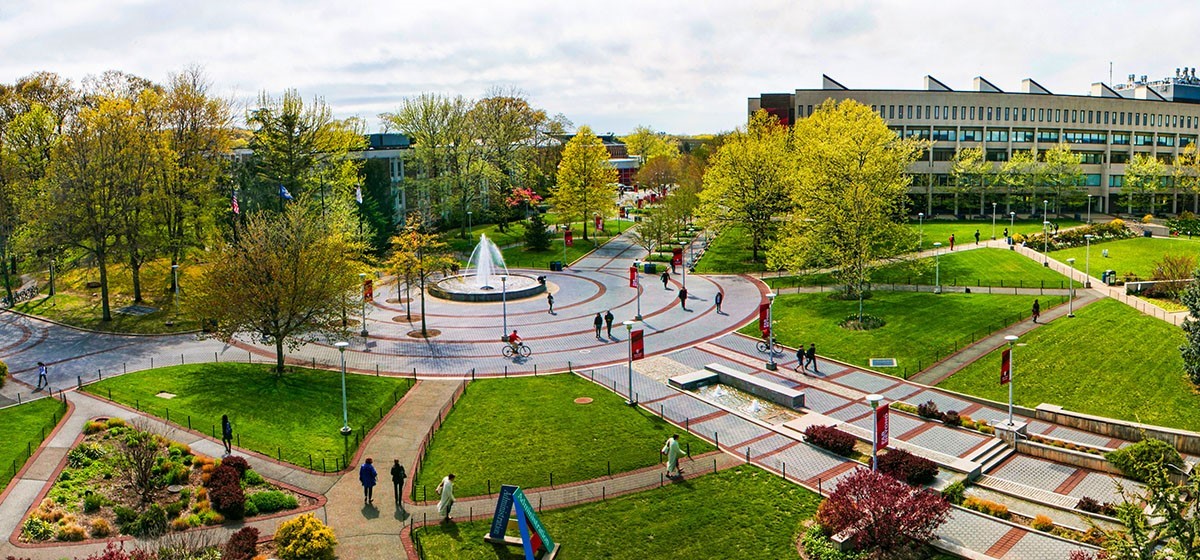Photo Credit – Stony Brook University
Stony Brook University became the epicenter of heated debates and clashes as pro-Palestinian protests roiled the campus. The demonstrations, which initially started peacefully, took a dramatic turn as tensions escalated, and protesters did not suspend their demonstration or leave at the 11:00p.m. curfew set by the university. This led to twenty-nine arrests, including students, faculty, and outside agitators and reignited conversations about the Israeli-Palestinian conflict within the university community.
As the demonstrations unfolded in front of the Staller Center and became more contentious, they quickly garnered attention beyond the campus grounds. Images and videos circulated on social media, capturing moments of confrontation between protesters and police after members of the administration at the university attempted to take control of the situation. Emotions ran high, reflecting the deeply polarized nature of the Israeli-Palestinian conflict.
The situation escalated when a group of protestors blocked the entrances to the Staller Center and set up tents. Campus security and local law enforcement intervened to maintain law and order, but their efforts were met with resistance from some demonstrators who denied all the university administration’s requests, resulting in a series of arrests.
In response to the unrest, Stony Brook University released a statement reaffirming its commitment to fostering a culture of respect, integrity, and social responsibility for all members of its community. The university emphasized the importance of their core values including freedom of expression, diversity, and social justice, that they fully support protests and peaceful assembly on our campus as a way for our community to engage in dialogue, advocate for change, and stand up for their beliefs. They also made clear that the campus rules set forth need to be respected for the safety of all students, faculty, and visitors to freely use the campus.
Dr. Maurie McInnis, President of Stony Brook University, expressed concern over the events that transpired on campus. The President of the university was deeply saddened police intervention was necessary. The police were called in when protestors were antagonistic to others that were not participating alongside them during the demonstration.
The arrests made during the protests sparked debates about the limits of free speech and the role of universities in facilitating discussions on controversial issues. Conversely, others have defended the actions taken by law enforcement, citing the need to maintain law and order and prevent further escalation of tensions. They argued that while freedom of speech is essential, it should not be used as a justification for disruptive, hateful, intimidating, or violent behavior. Additional protestors arrived the following morning making it appear that this issue is far from over on the university campus.
Congressman Nick LaLota (R, NY-01) met with the Stony Brook Police Chief Larry Zacarese after the protests and issued a statement.
“Upon my return from Washington today, I visited Stony Brook University to thank my friend Larry Zacarese for his leadership and his officers’ work following the recent protests on campus and subsequent unlawful conduct. Their professionalism has ensured students’ safety and an environment much different and better than the abhorrent and antisemitic harassment and assaults at Columbia University,” said LaLota. “Every American has a First Amendment Right to free speech, free assembly, and free expression. Yet, our laws prohibit trespass, assault, and battery and I applaud Law Enforcement and University officials for taking swift action to hold those who violated campus rules and our state’s laws accountable. Jewish students should not fear for their safety and Stony Brook’s actions are a model for other universities to follow.”
The protests at Stony Brook University underscored the complexities of addressing politically charged issues within academic settings. While universities strive to uphold principles of free speech and academic freedom, they also grapple with ensuring the safety and well-being both physically and mentally of their diverse student body.
As Stony Brook University navigates the aftermath of the protests and arrests, it remains committed to promoting a culture of inclusivity, respect, and open dialogue. The events serve as a poignant reminder of the challenges inherent in addressing complex geopolitical issues within the confines of academic institutions while also upholding the rules set forth by the university to keep all those on campus safe and free from fear.







